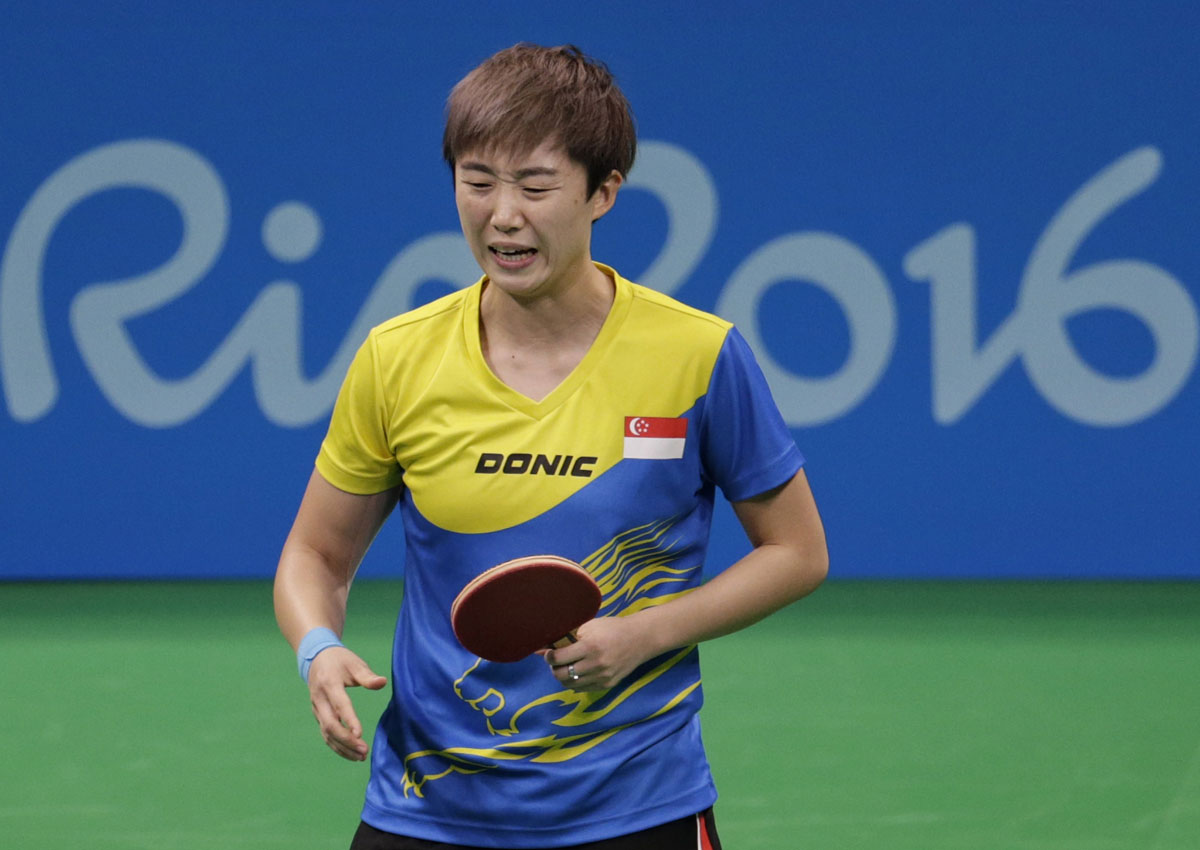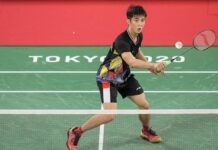Following the shock announcement that the Singapore Table Tennis Association (STTA) has dropped the nation’s most bemedalled Olympian Feng Tianwei, The New Paper has learnt that there are more reasons to those expressed by the association behind the stunning development.
On Tuesday, as part of its revamp, the STTA pointed to the fact that world No. 6 Feng will be 34 when the Tokyo 2020 Olympics swings by and that “she does not fit into the STTA’s current plans for rejuvenation”.
However, The New Paper has learnt that contributing to the STTA’s bold move is a series of alleged misdemeanours that rendered the 30-year-old’s position in the national team untenable.
While Feng was part of the Singapore women’s team who finished second at Beijing 2008 and third at London 2012, when she also collected a bronze in the women’s singles, she is said to have undermined the moves of her coaches and the STTA leadership on numerous occasions.
One example was when Feng and teammate Yu Mengyu asked the STTA to replace former national women’s coach Jing Junhong even before they fell out at last year’s Polish Open, which resulted in Jing’s redesignation as chief coach of youth development.
Another case was her constant coaching of her teammates at the Rio Olympics in August, despite the presence of current women’s team coach Chen Zhibin.
TNP also understands that Feng had allegedly refused to contribute a portion of the 2015 SEA Games women’s team gold prize money – amounting to $400 – for the coaches.
It is believed that this sharing policy has been in place at the STTA for years after being agreed to by the players, but Feng allegedly refused despite verbal requests and an ultimatum letter issued by the association’s CEO Wong Hui Leng.
The flouting of STTA rules persisted this year when a letter of warning was issued to her over alleged false claims on purchases. The three-figure amount was said to have been retrieved by the STTA from her salary.
The STTA did not deny these issues mentioned in TNP’s queries yesterday, but Wong said: “Disciplinary matters are private and confidential, and the STTA declines comment.
“However, we also believe very strongly in values like discipline, respect and the importance of teamwork and working together towards our common objective of bringing glory to Singapore.
“Moving forward, we are looking to working closely with all our partners and stakeholders in charting the sport’s path towards the next Olympics and beyond.
“Once again, we would like to put on record our gratitude to Feng Tianwei for her contributions to Singapore and wish her all the very best for the future.”
Feng declined comment when asked by TNP to address the issues raised.
On Tuesday, she had told TNP she would hold a press conference this week.
She also posted on her Facebook page that day, and said: “I will continue to compete in international competition using a different method.
“I will share my plans with the media and the public in a few days’ time. Thank you everyone for your concern, I will not leave the international scene!”
It is understood that she may still be able to compete on the ITTF Pro Tour at her own cost, subject to the STTA’s endorsement and her agreement to the association’s terms.
She may also play in a foreign table tennis league.
Aside from her Olympic exploits, Feng, who moved to Singapore from China under the Foreign Sports Talent Scheme in 2007 and received citizenship the following year, anchored the team to a momentous triumph over mighty China in the final of the 2010 World Team Table Tennis Championships.
However, the women’s team failed to win a medal at the Rio Olympics after tasting success at the last two Games.
Despite being the second seed, Feng was thrashed 4-0 by Japan’s Ai Fukuhara in the singles quarter-finals, and she was also blanked by both Kasumi Ishikawa and Mima Ito 3-0 in the team bronze-medal match as Singapore fell 3-1 to the Japanese.
Her last appearance in a Singapore jersey was at the Women’s World Cup in the United States earlier this month, when she won the singles bronze after losing to eventual champion, 16-year-old Japanese Miu Hirano in the semi-finals.
Since representing Singapore, Feng has earned close to $3 million in salary, sponsorship and monetary rewards.

This article was first published on October 27, 2016.
Get The New Paper for more stories.



















